Advertisement
Arts And The Next Mayor: What Boston Wants And What It May Get
Four years ago, Boston artist, curator and public policy advocate Kathleen Bitetti signed on with City Councilor Michael F. Flaherty Jr.’s mayoral campaign against incumbent Thomas Menino. She wrote Flaherty’s arts plan, the only real cultural platform in the mayoral race, but it went largely unnoticed as Menino was elected to his fifth term by 57- to 42-percent that November.
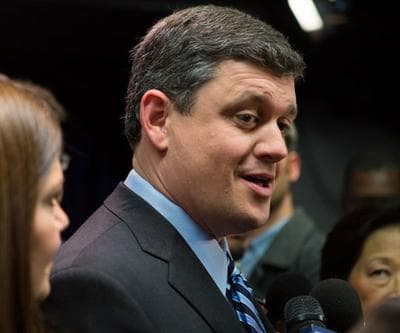
With Menino stepping aside, both finalists in this Nov. 5’s election—state Rep. Marty Walsh, whom Bitetti is advising on the arts this time, and Boston city councilor John Connolly—have made culture centerpieces of their campaigns.
“There’s been a huge change from ’09 to now,” Bitetti says.
It reflects the room for different ideas in the first open mayoral race in 20 years. It reflects a national trend of cultural communities asserting their influence. It reflects the major success of the Create the Vote campaign—lead by the arts advocacy group MassCreative, with funding from The Boston Foundation, Hunt Alternatives Fund, the Barr Foundation and the Barbara Lee Family Foundation.
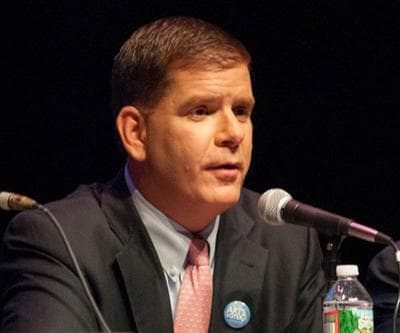
Menino has been praised for being instrumental in the rejuvenation or development of theaters like the Strand, Opera House, Paramount and Modern theaters and the Calderwood Pavilion at the Boston Center for the Arts. But many in the city’s arts community are critical, pointing to little funding, byzantine permitting processes, and what many call disinterest.
“Why does this city with the talent it has seem to be paralyzed? A lot of it comes down to the leadership,” says public arts advocate Ron Mallis, whom Connolly cites as a key advisor. Mallis calls for “a mayor who is able to identify or talk about the arts, not as this kind of fifth wheel, but integrated into the civic fabric of the entire city.”
Talking with artists, institution chiefs and the candidates themselves, a clear consensus of the Boston cultural community’s desires emerges: a cabinet-level position for arts and culture, more money, and easier permitting. Both candidates promise all these things in their platforms. (Read our interviews with Connolly and Walsh about their cultural plans.) Below is a sampler of the ideas and issues percolating through the city’s cultural community—and the campaign.
Advertisement
“Overall our goal it to help build a more vibrant and connected Boston and Massachusetts,” says MassCreative Executive Director Matthew Wilson. “We think there’s going to be a big change out of City Hall. And we think it’s going to provide a big lift to the city as a whole.”
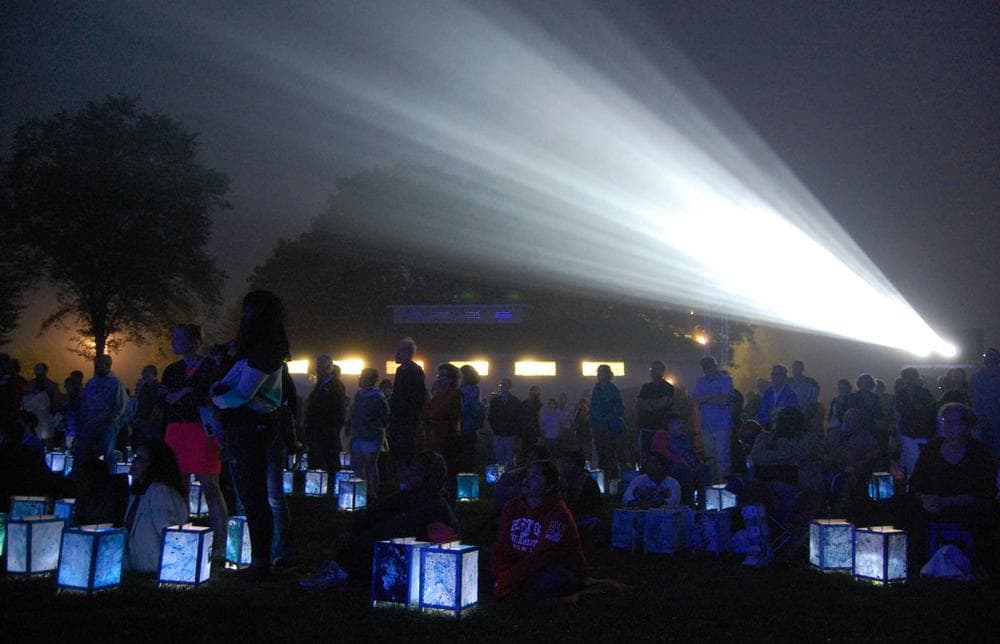
A cabinet-level position for arts and culture to be at the table when big decisions are made. “Hire someone who’s going to be out there making things happen. And the mayor’s going to let them,” says MassCreative’s Matthew Wilson.
“So pressure to get things done comes from the top,” says Somerville artist Dan Sternof Beyer of the group New American Public Art, which recently exhibited interactive sculptures outside the Boston Center for the Arts.
“It says to me that the mayor really does take the arts as seriously as police and fire and education and everything else,” says Leah Triplett of Boston, blog editor for the Boston online art magazine BigRedAndShiny.com. “No one wants to live in a city that only has police and firemen and those concrete civic things.”
“I don’t think it needs to be an artist. It probably shouldn’t be,” says Kelly Brilliant, executive director of the Fenway Alliance, a coalition of cultural organizations along the Fenway including the Museum of Fine Arts, the Gardner Museum, the Mary Baker Eddy Library, and schools like Berklee College of Music. “Someone with a background in policy and administration and someone with political knowledge.”
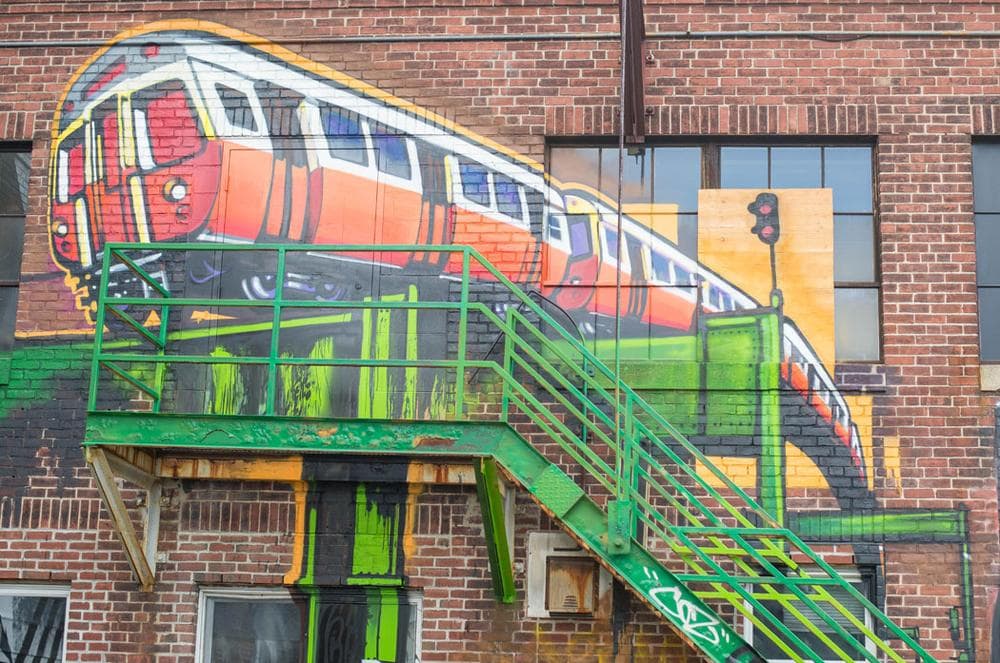
“Everything I do seems to be problematic for the city, from permitting to funding,” says Jason Turgeon, whom Connolly cites as an advisor. “Boston’s permitting is so arcane. … It feels set up to make you fail. If you succeed it’s because someone did you a favor.”
“What is the support for the artists who may have big ideas, but don’t have the connections?” asks Kate Gilbert of Boston, who makes art in public places. “Anyone signing off on permits should have more a yes attitude.”
Turgeon is co-producer of Figment, an annual free public art and performance event on the Rose Kennedy Greenway, and Bartlett Yards, a temporary street art showcase begun in an abandoned 8-acre MBTA bus yard in Roxbury last spring. “I’ve done the [Figment] permitting three times with Boston and it’s been different each year.”
Turgeon says Connolly “was instrumental in helping us get the various permits we need for the [Bartlett Yard] events series. If it wasn’t for him, we wouldn’t have been able to do it.”
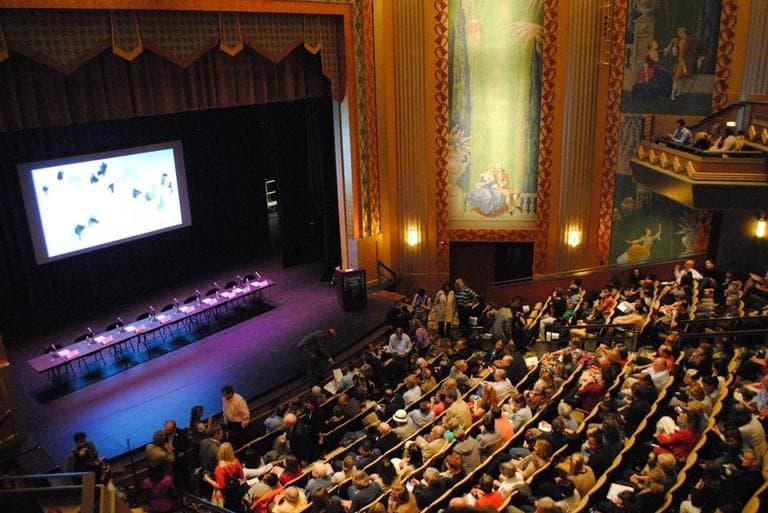
“What’s holding us back is available funding,” says Junior Gustavo, president of Dorchester Arts Collaborative.
According to the D.C.-based advocacy group Americans for the Arts, Boston consistently ranks among the bottom five of the 30 largest U.S. cities in annual arts spending—roughly a tenth per capita of what’s budgeted by cities like San Francisco and Seattle.
“It’s a competitive disadvantage to us that people are looking at San Francisco, New York, Seattle, Berlin and London as cooler cities,” Turgeon says. “All of those cities have public art in a way Boston does not. … We have that same level of creativity and that same level of talent, it’s just been completely suppressed.”
“Many other major cities have a revenue stream to support” culture, says Sue Dahling Sullivan, chair of the Boston Cultural Council, president of the Boston Arts Marketing Alliance, and chief of staff and chief strategic officer of the Citi Performing Arts Center. “Boston doesn’t have that.”
“I don’t think we’ll get great public art without investing in it. I don’t think we’ll get great public space without investing in it,” says Mark Pasnik, a principal in the Boston architecture firm over,under and co-director of pinkcomma gallery, which has organized biennials of the best of new architecture designed in greater Boston.
“In order to attract and retain young talent in Boston, you have to have certain amenities. And I think the arts are part of that,” says Walsh advisor Joyce Linehan. “Even in a down economy those investments pay off.”
A mayor to lead the charge for arts. “You need that kind of central voice in the culture that changes how things get done,” says over,under’s Pasnik.
“A lot of people are extremely receptive” to art in the city bureaucracy, says New American Public Art’s Beyer. “We’re just waiting for the top brass to give them an ear.”
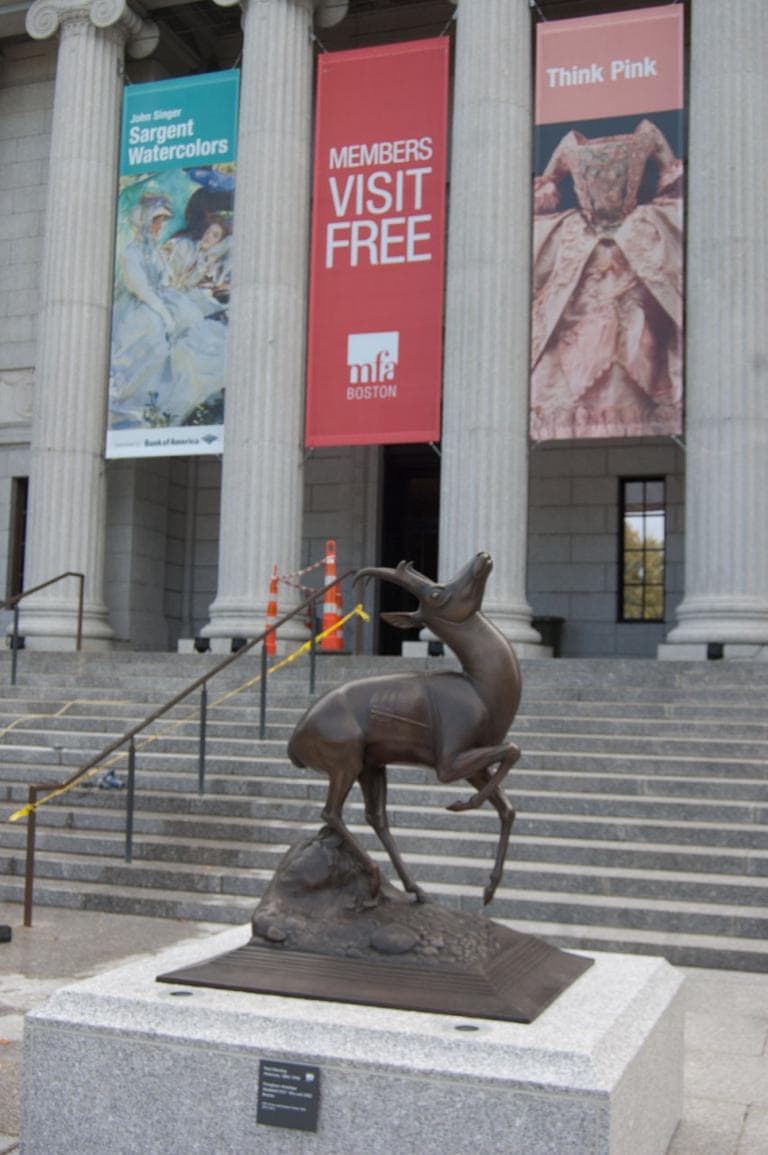
“Once they’re in office it will depend on who they have at the table,” says Citi‘s Sullivan.
So consider art folks close to the candidates now. Connolly says his cultural platform has been shaped by advice from Jason Turgeon of Figment and Bartlett Yards and Ron Mallis, who has worked as an urban planner and is presently devoting himself to promoting public art via his organization Boston APP/Lab. Connolly adds, “And certainly a number of arts teachers out there have been a big help.”
Walsh’s policy director for the whole campaign—not just culture—is Joyce Linehan, former manager of the Lemonheads band and Boston rep for the music label Sub Pop. Presently she’s a publicist for First Night, the Boston Book Festival and ArtsEmerson. She’s also wired into Massachusetts politics. Many credit a gathering in Linehan’s Dorchester living room for convincing Elizabeth Warren to (successfully) run for U.S. Senator in 2012.
The Walsh campaign’s lead culture advisor is Boston artist Kathleen Bitetti, curator at the community arts group Medicine Wheel and co-founder of the Massachusetts Artists Leaders Coalition. She was very active in shaping the Massachusetts healthcare reform law to support artists when it was enacted in 2006. Another Walsh advisor is David Dower, director of artistic programs at ArtsEmerson theaters.
“Artists are seeing themselves forced out of the city,” says Junior Gustavo, president of Dorchester Arts Collaborative. There’s a lot of new building in Boston, but little that’s affordable to artists, he adds.
“Owning a place in Boston is a pipe-dream. Forget it,” says Nicky Enriquez, a web and social media specialist at the Mary Baker Eddy Library and a librarian elsewhere. “I work two jobs and that’s how I can afford to live in Boston.”
“People always speak about young emerging artists,” Bitetti says. “It actually gets a lot harder as you age up. … How do we look at the whole life of an artist here and support it all the way through?”
“The reason why we’re not a flourishing music market is it’s so hard to get venues, it’s so hard to get approved for events,” says Dutch ReBelle, a Malden rapper who performs around Boston. “It’s like hoping through hurdles to try to get a hip-hop event booked and the usual reason is safety. … If we can open up the avenues for the arts and education and creativity, it’ll cancel out a lot of the violence and street stuff that they’re dealing with. Because people have nothing to do.”
Turgeon also points to young adults presenting underground rock shows in bedrooms and basements without permits: “They’re being squashed by the cops because there’s nowhere to play.”
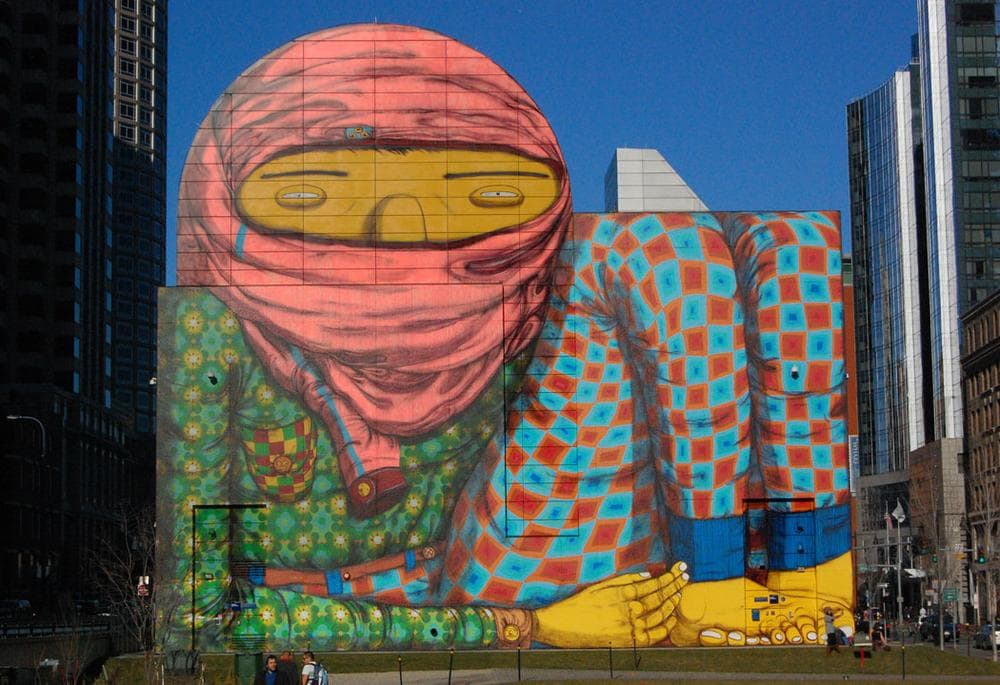
“What they need to do is just market the heck out of what is already going on,” says Fenway Alliance’s Brilliant. Many in the city’s cultural community call for the mayor to better promote not just tourism, but art, not just the big institutions, but small neighborhood venues.
The next mayor, Dorchester Arts Collaborative’s Gustavo says, should do more to promote attendance at artist open studio events around the city. “What can you do to get more people involved?”
Bitetti points to Walsh’s plan to promote Boston art and artists via relationships with sister cities and embassies and consulates around Boston: “We’re an international city. We need to act like it.”
Arts and tourism are not the same thing. “It’s really important that we take economic development out of cultural affairs,” says Linehan. Tourism and economic development overshadow the arts if they’re not separated out, she adds. “It deserves its own stature.”
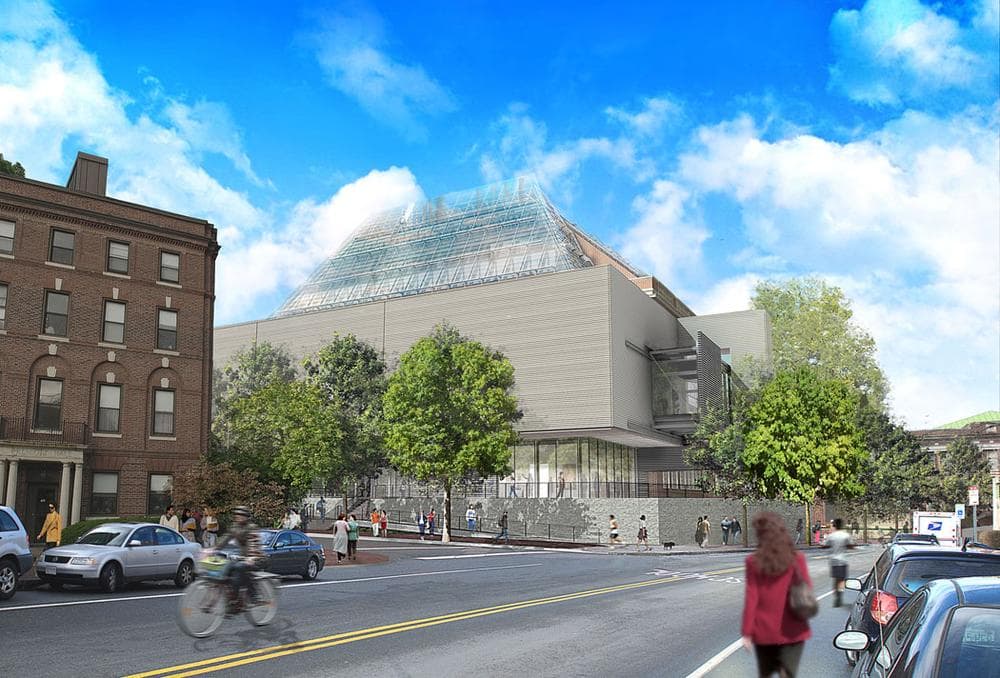
“The institutions in the greater Boston area are the foremost assets Boston has,” says Mallis, pointing to Harvard, MIT and other area nonprofits that are international leaders. “I don’t think that’s been leveraged.”
“Mayors used to recruit from institutions here to make a difference. Barney Frank got his start that way,” says Chris Grimley, Mark Pasnik’s colleague at over,under and pinkcomma. “I think the mayor could reach out to people with international reputations at colleges and institutions here to bring them into the public realm.”
“There are so many smart people here” says BigRedAndShiny’s Triplett, “and yet there’s this disconnect between serious things and people thinking about serious art.”
“Could the architecture be more innovative?” asks over,under’s Pasnik. “A lot of the best talent in Boston gets much of their work elsewhere.”
He and over,under colleague Grimley call for a new master plan for Boston, which would be the city’s first since 1975. “The physical city is the way to support the cultural city. The physical city can be a player in generating public culture,” Grimley says.
“What kind of city we want to be in the future depends on us planning that city,” Pasnik says. “It doesn’t just happen.”
Jonathan Richman doesn’t want “Roadrunner” to be the state rock song, but John Hodgman does. In February, at the urging of Linehan, Walsh filed a bill to make Jonathan Richman and the Modern Lovers’ 1972 recording “Roadrunner” the state’s official rock song. The proposal went viral. Novelist Nick Hornby took to Facebook to proclaim: "I have never urged anyone to vote for anything on FB. But here, finally, is a cause we can all agree on.”
Richman, though, came out against it: "I don't think the song is good enough to be a Massachusetts song of any kind."
In a blog post Monday, “Daily Show” commentator/comedian and Brookline native John Hodgman threw his “strong support” behind the song: “It is woven as deeply into the cultural landscape of Massachusetts as the Turnpike itself. It is the pulsing sound of the night and the future. It connects the midnight ride of Paul Revere with the dream of every Massachusetts teenager who has just gotten their license and is discovering the Freedom Trail that is Route 128 after the last movie lets out.”
Hodgman invited Walsh to his Nov. 2 show at the Wilbur Theater to “give an update on your efforts.” Via Twitter @marty_walsh replied, “Thank you, @hodgman I would like to accept your kind invitation for Saturday.” To which Hodgman tweeted, “OH BOY. Gotta learn roadrunner on uke.”
Note that “Roadrunner” has yet to be approved by the Massachusetts Legislature. “The guy I asked to introduce the bill has been a little distracted lately,” jokes Linehan.
“I think it’s very important after this election is over for everybody to continue this,” Mallis says. “These policy statements or platforms don’t have a half-life of 15 minutes. … In order to make them last 15 minutes we’ve got to hold their feet to the fire.”
“They’ve made a lot of commitments. Now it’s our role to say, ‘How do we implement this stuff?’” says MassCreative’s Wilson. “We’re at the table and they’re paying attention. I think there’s something behind their commitments and their promises.”
Next up, MassCreative has its sights set on the 2014 governor’s race, when Deval Patrick’s second term will end. The arts advocacy group aims to apply lessons from the Boston campaign to make culture a central issue in the statewide race.
“We’ve learned that the candidates are receptive to this stuff," Wilson says. “There is a common interest that we can come together around. Arts, culture and creativity are essential drivers for vibrancy and connectedness of a community.”
This article was originally published on November 02, 2013.
This program aired on November 2, 2013. The audio for this program is not available.

